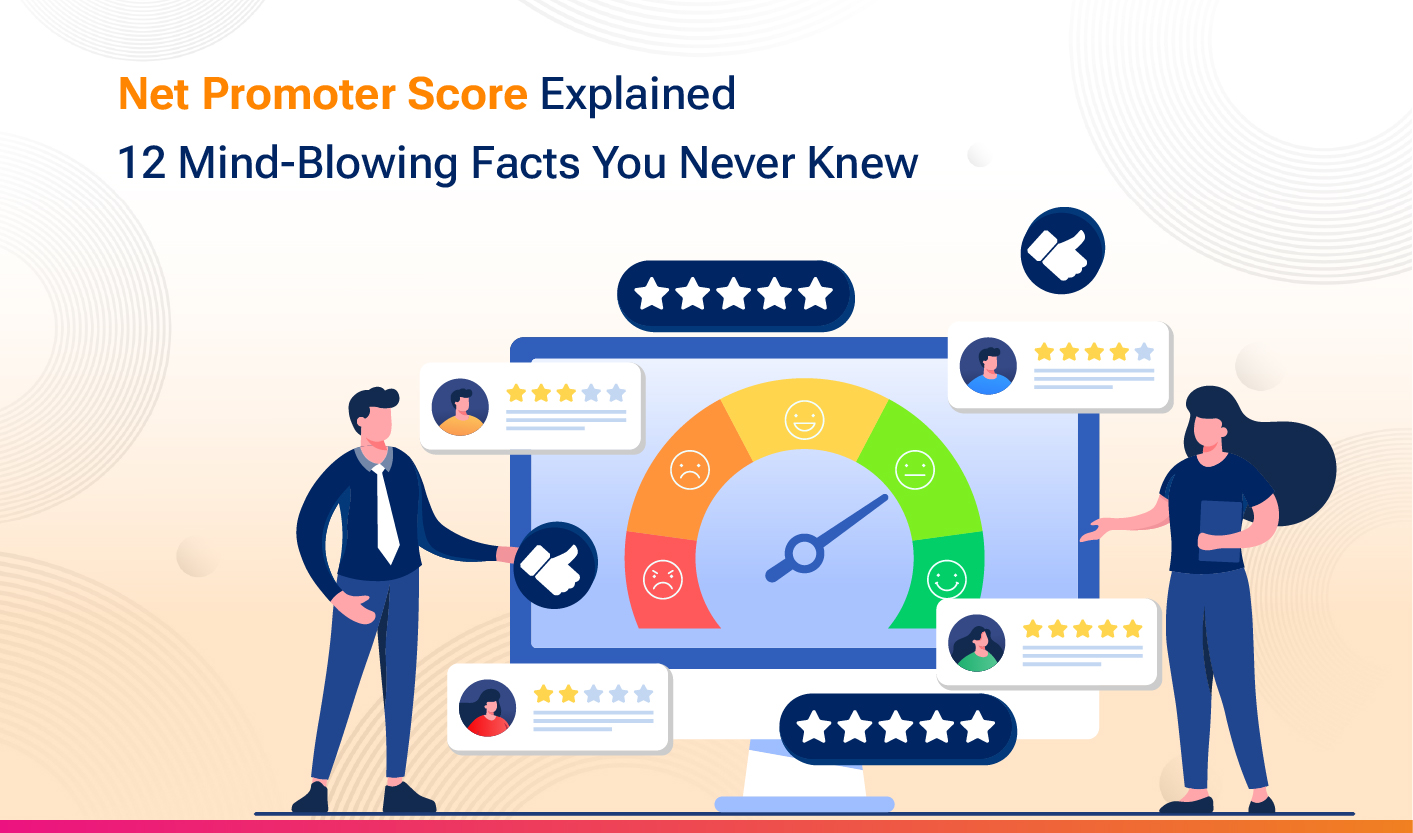Blogs
Services
Net Promoter Score Explained: 12 Mind-Blowing Facts You Never Knew
May. 28, 2025

Running a business without knowing what your customers think of you is like traveling without a location. Interestingly, there are a couple of tools that can help you know what your customers think about your business, one of such tools is the Net Promoter Score.
It is simple, honest, and incredibly telling. If you’ve never heard of it before or you’ve just been ignoring it, this is your wake-up call; don’t ignore it again.
In this post, we’re going to break down exactly what a Net Promoter Score is, why it matters, how to use it, and 12 straight-up wild facts about this customer loyalty metric that’ll probably change how you think about feedback forever.
What Is a Net Promoter Score?
The NPS Survey Question is Usually in This Format:
When collecting the answers, you group respondents like this:
● Promoters (9–10): These are your ride-or-die customers. They love you, and they’re not shy about it. Think of them as your brand’s biggest marketers.
●
Passives (7–8): Passive customers
aren’t great enthusiasts of your product or service, but they are not mad about
it either. They’re neither happy nor sad about your product.
● Detractors (0–6): They’re unhappy customers, and if you don’t make amends in due time, they might be telling others why they should not patronize your business.
Why Is NPS Important?
●
It offers a simple way of measuring customer
loyalty.
●
It lets you know your biggest fans.
●
It gives you early warnings when something is
off.
●
NPS survey helps you identify detractors and let
you know why they are not satisfied.
●
It shows you which customers are ready to become
brand ambassadors.
●
NPS helps you benchmark your performance against major
market competitors and monitor your progress over time.
● It helps your team spot problems before they become disasters.
How to Calculate NPS?
- Ask the
magic question: “How likely are you to recommend us?”
- Tally up
your Promoters, Passives, and Detractors.
- Use this
formula:
To Calculate NPS
●
70% of your customers are Promoters.
● 10% are Detractors.
12 Net Promoter Score Facts You Need To Know
1. High NPS Companies Grow Faster
2. NPS Can Predict The Future
3. Detractors Aren’t Always Haters.
4. Passives Are a Secret Goldmine.
5. Promoters Talk For Free.
6. Timing Matters More Than You Think.
7. People love Simple Surveys.
8. NPS is Great For Spotting Trends.
9. It's Not Just For Customers.
10. NPS Isn't Enough
●
Purchasing
●
Advocacy
●
Retention
11. Timing and International Events Can Influence The NPS Score
12. NPS is like Your Business Heartbeat
Also Read: Top 5 Alternatives to Net Promoter Score
How to Run a Net Promoter Score Survey and Collect Customer Feedback?
● Identify Your Audience: The first thing you need to do is identify your audience. Do you want feedback from your entire audience or from only a specific segment?
●
Write the NPS
Question: Ensure to keep the question simple. Usually it takes this format: “On
a scale of 0-10, how likely are you to recommend us to others? Then follow it
up with an open-ended question like: Tell us the main reason for your score.
●
Choose the Right
Platform: This is where QDegree does its magic. It has an amazing user interface
that allows you to design NPS surveys with higher response rates.
●
Send the Survey: Distribute the
survey using different means. Can send it via email or embed it in your
website. You may also share them through social media. QDegrees have multiple
channels of distribution that help you reach your audience on every platform
they may be on.
●
Analyze the
Results: Once you have collected the responses, use QDegrees to analyze the
results. With this, you are able to spot trends, insights, and interpret
results faster and more accurately.
●
Act on the
Feedback: It is important to act on the feedback that you have received. This
may require you to address certain complaints or improve your services. By all
means, make an effort to improve customer loyalty.
● Close the Loop: Don't be silent about the efforts you are making. Notify the customers, let them know the action you have taken to resolve their complaints.
Read More: Net Promoter Score Calculation
Wrapping Up
Net Promoter Score (NPS) is a metric that measures how likely your customers are to recommend you to someone else. With this, you can tell whether the percentage of customers who are satisfied with your product or services.
